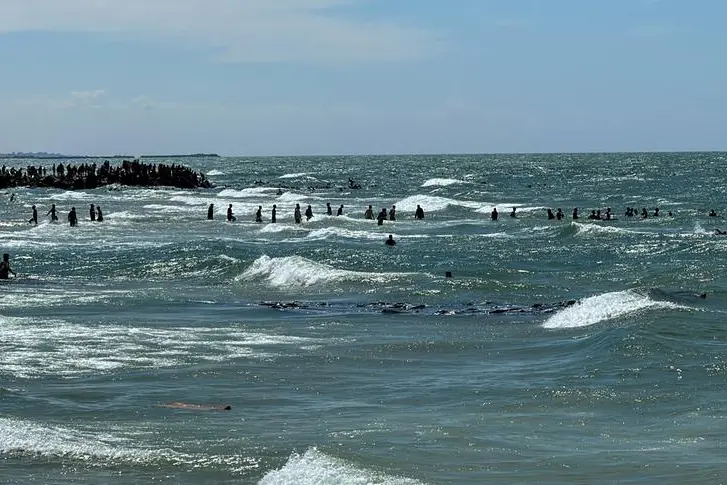PHOTO
Before the Gaza war, Palestinian fisherman Jalal Qaraan navigated his small boat for long distances in search of a good catch. These days he says merely casting his nets could be deadly if he draws the wrath of the Israeli navy.
Israeli airstrikes and shelling have reduced large swathes of the densely populated coastal Gaza Strip to rubble and killed more than 32,000 Palestinians as the war with the Palestinian Islamist group Hamas rages.
There are also plenty of dangers at sea for fishermen like Qaraan, who must nevertheless support his family.
"When we attempt to go out.. we are besieged with gunfire, bombarded with shells, sound bombs. It's always a risk, entering the water is a risk," he said as he pulled his boat to shore after catching a few fish.
"There is not a day that goes by without them coming at us. It's all fear and terror, but despite this, I go in to be able to provide a secure living for my children."
The Israeli military was not immediately available for comment.
Qaraan is especially eager to work the seas during the Muslim holy month of Ramadan, when families usually enjoy large meals together after fasting. But festivities are hard to come by these days.
At least 32,623 Palestinians have been killed in Israel's air and ground offensive into Hamas-run Gaza, according to the health ministry there. Thousands more are believed to be lying dead under rubble, and more than 80% of the 2.3 million population have been displaced, many of them at risk of famine.
The war began when Islamist Hamas militants broke through the border on Oct. 7 and rampaged through nearby communities, killing 1,200 people and abducting 253 hostages according to Israeli tallies.
Judges at the International Court of Justice on Thursday unanimously ordered Israel to take all the necessary and effective action to ensure basic food supplies without delay to the Palestinian population in Gaza.
The court said the Palestinians in Gaza face worsening conditions of life and famine and starvation are spreading.
"As for the fishing, there is no quantity. Today in Ramadan, I'm fasting, risking my life to get one or two kilos of fish to eat or to sell them to buy household necessities," said Qaraan, preparing his fishing net.
Other Gazans are feeling the effects of the fishing crisis.
As she prepared for the breaking of the fast Umm al-Zein, one of the hundreds of thousands of displaced Gazans, said her children craved fish. "Palestine is known for its great fish and seafood but due to the war fish is not available. Unfortunately, we haven't eaten fish since before October 7th," she said.
(Writing by Michael Georgy; Editing by Hugh Lawson)





















